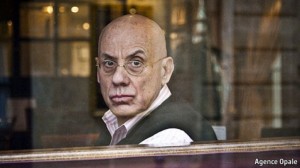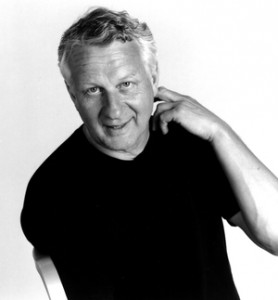Some interesting reading this week.
The Q&A: James Ellroy: Writing scandal
 An interesting interview with the author of one of my favorite novels, LA Confidential.
An interesting interview with the author of one of my favorite novels, LA Confidential.
Read why Ellroy tries to avoid popular culture and why he doesn’t write books about the present.
And read why he says, ” I don’t read.”
Reading 125 Titles A Year? That’s ‘One For The Books’
 In contrast to James Ellroy, writer Joe Queenan does read—a lot.
In contrast to James Ellroy, writer Joe Queenan does read—a lot.
Despite his love of reading, Queenan tells NPR that he dislikes both libraries and bookstores.
Read what he has to say about the joy of rereading a book that you love. But don’t take his comments on book clubs too seriously.
Are Women Crime Writers Deadlier Than The Male?
Critic Danuta Kean says yes:
For every Jo [Nesbø ], Stieg [Larsson] and Stuart [MacBride], there are ten women stepping into the shoes of female crime writers Karin Slaughter, Tess Gerritsen, Chelsea Cain and Mo Hayder. And they are pushing boundaries with work that is getting nastier as a result.
Kean interviewed one of my favorite crime writers, Val McDermid. Here’s what McDermid had to say:
Women writing in this genre deny they write to please the market. ‘We’re writing about murder for God’s sake,’ Val McDermid insists when I ask about the violence in her Tony Hill series. It is shocking, the critically acclaimed author maintains, because violence should be shocking.
McDermid believes strongly that women write and read these books because from childhood we are conditioned to be afraid. ‘We perceive violence differently from men,’ she explains. ‘From childhood we are taught if you walk down a dark street you risk being raped or worse. We fear the sound of footsteps, men don’t.’
Women writers empathise with the darkest fears of readers who seek reassurance that, not only is it possible to survive, but that the rule of law will prevail, she claims. It is a strong argument.
Read why Kean concludes:
the fears of women have helped create these monsters by making them lucrative bestsellers. But just because we have an appetite for fear, does not mean, I believe, that we should feed it such strong meat. Because as crimes become ever more grotesque we risk becoming inured not just to acts of evil but their impact on the victim as well.
Crime’s grand tour: European detective fiction
Crime fiction is a magnifying glass that reveals the fingerprints of history. From Holmes and Poirot to Montalbano and the rise of Scandi-noir, Mark Lawson investigates the long tradition of European super-sleuths and their role in turbulent times.
50 crime writers to read before you die
The [U. K.] Telegraph offers a list of staffers’ favorite crime writers of all time:
We wanted to compile a list of writers we had, jointly and severally, loved. We wanted to include writers like Dash Hammett, who brought something new and exciting to the genre; like Elmore Leonard, who turns an old trick in it with incomparable style; and like Poe, who invented it. We did not, except incidentally, take into account popularity.
Who, we asked ourselves finally, are the crime writers who can actually write? We believe any serious reader will profit from acquaintance with any of the writers on this list.
It’s Genre. Not That There’s Anything Wrong With It!
People often use the term genre fiction pejoratively, to mean novels that are formulaic and insipid. In that scheme of things, the opposite of genre fiction is literary fiction, or novels of higher literary standards. Other critics use the terms low-brow and high-brow to describe this dichotomy.
On Page-Turner, The New Yorker‘s blog, Arthur Krystal has this to say about genre fiction:
What I’m trying to say is that “genre” is not a bad word, although perhaps the better word for novels that taxonomically register as genre is simply “commercial.” Born to sell, these novels stick to the trite-and-true, relying on stock characters whose thoughts spool out in Lifetime platitudes. There will be exceptions, as there are in every field, but, for the most part, the standard genre or commercial novel isn’t going to break the sea frozen inside us. If this sounds condescending, so be it. Commercial novels, in general, whether they’re thrillers or romance or science fiction, employ language that is at best undistinguished and at worst characterized by a jejune mentality and a tendency to state the obvious. Which is not to say that some literary novels, as more than a few readers pointed out to me, do not contain a surfeit of decorative description, elaborate psychologizing, and gleams of self-conscious irony. To which I say: so what?
Book Riot Readers’ Top 50 Favorite Novels
Book Riot asked readers to vote for their favorite novels, and the results are in.
Did your favorites make the list?
I’ve read 33 of the 50 novels on this list. How many have you read?
